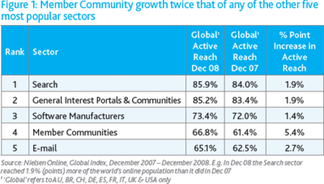Governments engaging using Social Media
There are three interesting posts this week from various sources around Social Media. First one really underlines why it cannot be ignored. After reading the post ‘Social media now more popular than personal email – Neilsen’ and looking at the statistics of internet usage I have to admit this is the way that I communicate to a number of my friends. Whereas a year or two ago I would email friends, now I often just send messages on Facebook.
There are a number of examples of government organisations who have used Facebook effectively and those that have not managed so well. Checking back on Boris Johnson (Mayor of London) who back in January I pointed out had not posted any updates to his Facebook group for a month now looks like he is (or someone is) doing it on a daily basis.
It is a way of people keeping up-to-date with what he is doing and what he is thinking. Most of his posts seem to get a fair amount of comments – these range from thoughtful insights to ‘Boris for King’ and ‘we have named our dog Boris after you”….
Leading on from that is a post from Andrea DiMaio who was talking to a government client about their web presence and Facebook presence when it was pointed out that they did not believe that they had any presence on Facebook. Someone it appears had set up a group and was happily answering questions, all looked official except no-one knew who the creator of the group was…
It is important that even if you are not engaging over Facebook or Twitter, you need to ensure that someone else it not doing it on your behalf.
Finally, it is important not to forget that there is more than just facebook and twitter out there. As pointed to in the excellent whitepaper on Obama’s use of Social Media ‘Barack Obama’s Social Media Toolkit’, the Obama campaign maintained profiles across 15 different social networking sites including Facebook, MySpace, LinkedIn, AsianAve.com, MiGente.com, BlackPlanet.com and others. There is more that just Facebook out there and you need to understand what local and community driven social networking sites are out there.
As pointed out by the third post ‘2009 Facebook demographics and statistics report’ there has been a staggering increase of 513% of people over 55 joining Facebook, while college and high school users has dropped by 20%. Facebook was not the first social network out there, and it will not stay at the top forever. You need to understand who are the people you want to communicate with, then you needs to understand where they are – don't assume it is Facebook, it may be somewhere else.
